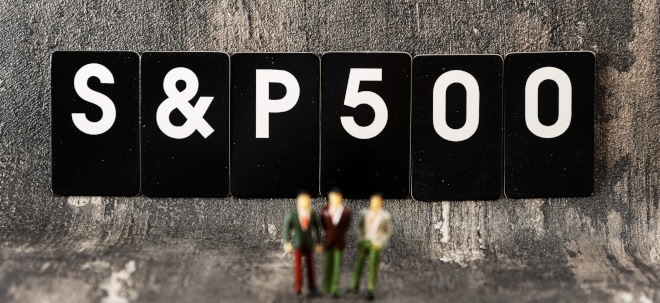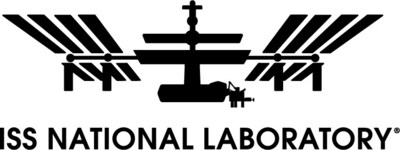A Year of Space-Based Innovation: ISS National Lab Sponsored More Than 100 Payloads in 2024, Advancing R&D in Low Earth Orbit
The ISS National Lab supported 110 payloads that launched to the orbiting outpost over seven missions this year, enabling discoveries for terrestrial benefit
KENNEDY SPACE CENTER, Fla., Dec. 19, 2024 /PRNewswire/ -- In a robust year for space-based research, the International Space Station (ISS) National Laboratory supported the launch of 110 payloads across seven missions, facilitating science and technology research and development (R&D) that pushes the limits of innovation. Projects sponsored by the ISS National Lab this year enabled advancements in biotechnology, fundamental science, advanced materials, in-space manufacturing, and other areas. Companies, academic institutions, and government agencies continue to leverage the unique space environment to conduct R&D that brings value to humanity, validates new technologies and capabilities in space, and drives business models in low Earth orbit.
ISS National Lab-sponsored payloads launched to the space station on four NASA-funded Commercial Resupply Services missions, two astronaut crew missions through NASA, and one private astronaut mission from Axiom Space.
Below are a few highlights from the year in space:
- Several projects that launched in 2024 focused on in-space manufacturing, an area of strategic importance for the ISS National Lab and NASA.
- Building on the successful 3D printing of a human meniscus on the ISS, Redwire Corporation's BioFabrication Facility (BFF) printed test patches of cardiac tissues that could one day be used for drug testing and tissue repair for patients on Earth.
- Bristol Myers Squibb and Eli Lilly and Company utilized a manufacturing platform Redwire developed called the Pharmaceutical In-space Laboratory (PIL) Bio-crystal Optimization eXperiment (BOX) to crystallize small organic molecules in microgravity with promising results. Essentially a "lab-in-a-box," the PIL-BOX facility enables pharmaceutical companies and researchers to grow small-batch crystals for protein-based pharmaceuticals that may lead to more effective therapeutics for patients on Earth.
- Flawless Photonics launched technology for manufacturing high-value ZBLAN optical fiber in microgravity. ZBLAN can perform up to 100 times better than the silica fibers commonly used to connect our digital world today. The company produced more than seven miles (11.9 km) of optical fiber on station that is now being evaluated on Earth.
- Researchers from LambdaVision continued to leverage the ISS National Lab in their quest to manufacture an artificial retina to restore significant vision in patients with retinitis pigmentosa, a rare genetic disorder that causes vision loss. LambdaVision sent its ninth investigation to the space station earlier this year. The company is one of the growing number of organizations launching multiple investigations that build on previous space-based results.
- Several projects that launched this year validated valuable new technologies.
- The ArgUS platform, developed by Airbus U.S. Space and Defense, Inc., launched to the space station and supported its first projects in the Bartolomeo external hosting platform. ArgUS expands access to the space station's unprecedented vantage point and extreme environment for materials and remote sensing projects, enabling multiple missions related to Earth observation, robotics, materials science, and astrophysics.
- NASA's Astrobees, three free-flying robots on the space station designed to test technology and assist astronauts with routine duties, had a busy year. For example, Kall Morris used the Astrobees to simulate an active debris removal mission using its REACCH capture system, while Boeing and CSIRO (an Australian government agency responsible for scientific research) tested a novel 3D mapping technology to produce detailed maps of remote environments.
- The Malta College of Arts, Sciences, and Technology tested its ASTROBEAT cold welding technology in an investigation designed to simulate the repair of a spacecraft hull damaged from a hypervelocity impact in space. The project seeks to establish cold welding as a new tool for in-space repair, significantly boosting the durability of spacecraft and the safety of crewed missions while addressing the growing concern of space debris.
- Axiom Space launched its third private astronaut mission (Ax-3) in 2024, demonstrating the expansion of R&D on station with new participants in the growing low Earth orbit economy. The mission featured a variety of projects sponsored by the ISS National Lab.
- The Sanford Stem Cell Institute at the University of California, San Diego continued to build on stem cell research conducted on previous Axiom Space missions by studying tumor organoids in microgravity. The team seeks to identify early cancer warning signs for better diagnosis and treatment of the disease.
- An investigation from the National Stem Cell Foundation evaluated 3D brain models derived from induced pluripotent stem cells of patients with Parkinson's disease and primary progressive multiple sclerosis. The project studied the mechanisms behind these and other neurodegenerative diseases, and results may help lead to new therapeutics for patients on Earth.
- The U.S. National Science Foundation (NSF) has a longstanding partnership with the ISS National Lab to advance fundamental research on station that could lead to valuable future applications. In 2024, NSF funded 12 investigations that flew to the orbiting laboratory, ranging from tissue engineering to transport phenomena and fluid dynamics.
- A project from Florida International University studied the behavior of tiny, engineered particles dispersed in a liquid to form an active colloid. Results could inform a variety of applications, from targeted drug delivery to disease screening, water desalination, and photothermal therapies to treat cancer and other diseases.
- An investigation from the University of Connecticut leveraged microgravity conditions on the space station to test an innovative DNA-inspired Janus base nanomaterial that may help repair cartilage. Results from this investigation could lead to improved treatments for patients with degenerative joint diseases.
- A team from the University of Notre Dame launched the third in a series of experiments to understand bubble formation in microgravity to develop extremely sensitive biosensors for detecting trace substances in liquids. Results from this research could lead to new sensor technology for detecting early cancer markers in blood.
- The ISS National Lab continued its mission to prepare the scientists and engineers of the future by supporting science, technology, engineering, and mathematics (STEM) educational programs and workforce development with a number of projects that launched to the space station in 2024.
- Genes in Space launched its 11thstudent investigation, a gene editing experiment from Isabel Jiang, now a freshman at Yale University. The project investigated the effects of radiation and the space environment on gene editing mechanisms. Results could shed light on genetic risks for certain diseases during spaceflight.
- The Student Spaceflight Experiments Program sent its 18th mission to the orbiting laboratory, engaging students from 38 communities in the scientific process to spark an interest in STEM career fields.
2024 proved to be an exciting year of launches and research on the space station. The ISS National Lab and NASA continue to work in tandem to launch payloads that benefit humanity and bring value to our nation. To learn more about research and technology development projects sponsored by the ISS National Lab, including how to propose concepts for future space-based research, visit our website.
Download a high-resolution image for this release: The International Space Station
About the International Space Station (ISS) National Laboratory:
The International Space Station (ISS) is a one-of-a-kind laboratory that enables research and technology development not possible on Earth. As a public service enterprise, the ISS National Laboratory® allows researchers to leverage this multiuser facility to improve quality of life on Earth, mature space-based business models, advance science literacy in the future workforce, and expand a sustainable and scalable market in low Earth orbit. Through this orbiting national laboratory, research resources on the ISS are available to support non-NASA science, technology, and education initiatives from U.S. government agencies, academic institutions, and the private sector. The Center for the Advancement of Science in Space™ (CASIS®) manages the ISS National Lab, under Cooperative Agreement with NASA, facilitating access to its permanent microgravity research environment, a powerful vantage point in low Earth orbit, and the extreme and varied conditions of space. To learn more about the ISS National Lab, visit our website.
As a 501(c)(3) nonprofit organization, CASIS® accepts corporate and individual donations to help advance science in space for the benefit of humanity. For more information, visit our donations page.
Media Contact: | Patrick O'Neill |
904-806-0035 | |
International Space Station (ISS) National Laboratory |
1005 Viera Blvd., Suite 101, Rockledge, FL 32955 • 321.253.5101 • www.ISSNationalLab.org |
![]() View original content to download multimedia:https://www.prnewswire.com/news-releases/a-year-of-space-based-innovation-iss-national-lab-sponsored-more-than-100-payloads-in-2024-advancing-rd-in-low-earth-orbit-302336489.html
View original content to download multimedia:https://www.prnewswire.com/news-releases/a-year-of-space-based-innovation-iss-national-lab-sponsored-more-than-100-payloads-in-2024-advancing-rd-in-low-earth-orbit-302336489.html
SOURCE International Space Station National Lab


